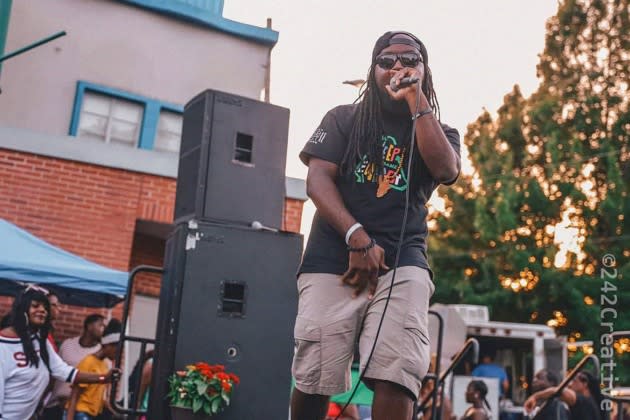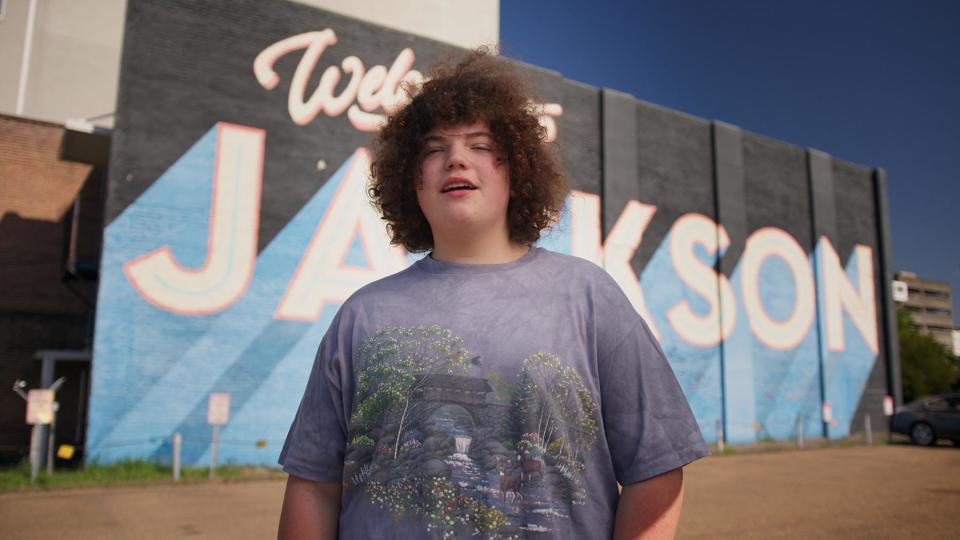How Jackson, Mississippi Became a Hotbed for Southern Hip-Hop

[Jackson, Mississippi, is still recovering from a water crisis that left approximately 150,000 people without safe drinking water, a cruel reminder of decades-long structural issues facing a predominantly Black city. Interviews for this story were conducted in the spring.]
Talk to scene makers in Jackson, Mississippi, like Brad “Kamikaze” Franklin and you’ll hear a lot of evangelism about how the “birthplace of American music,” as the state bills itself, is continually overlooked as a breeding ground for hip-hop talent.
More from Rolling Stone
Why San Juan's Coliseo de Puerto Rico Is a Rite-of-Passage Venue for Latin Pop Stars
Nashville Is Changing at Lightning Speed. But Not Inside This Old-School Honky-Tonk
Under the Big Sky Festival Taps Into Montana Fever With Americana Music and Grand Views
Franklin, who recorded as one-half of the hip-hop duo Crooked Lettaz with David Banner in the early aughts, points to Snoop Dogg, Rick Ross and the late Nate Dogg — all of whom have ties to the state — to illustrate his point. But he could go on. In recent years, Rae Sremmurd (Tupelo) and Big K.R.I.T. (Meridian) have made big moves in the genre, but only after leaving for bigger cities.
“Talent has never been our problem in Mississippi,” Franklin tells Rolling Stone. Mississippi has long been a place Black musicians leave, beginning with the Great Migration that saw Muddy Waters, Howlin’ Wolf and others join millions of African Americans moving north to escape the Jim Crow South. Today in Jackson, though, where 83 percent of the population is Black, musicians are confronting those same ills — if a few decades downstream — and they’re doing it defiantly, wearing T-shirts emblazoned with slogans like “Jackson Over Everything.”
“I consider Mississippi to be hallowed ground and sacred ground when it comes to music,” Franklin says, “and every other state should be paying homage to Mississippi in some way, because their music scenes would not exist if it were not for the people who came here to Mississippi. David Banner and I call Mississippi ‘Little Africa’ … it is the cradle of civilization for Black folks in this country.”

Through Third Coast Radio, a weekly statewide radio show, and the annual Jackson Indie Music Week showcase, Franklin has focused on lifting up the MCs in Jackson that came in the wake of Crooked Lettaz and Banner solo bangers “Like a Pimp” and “Cadillac on 22’s.” Lil Lonnie, who collaborated with Slim Jimmy of Rae Sremmurd and others, was the toast of the scene until his death in 2018, but he inspired the artists now releasing music and throwing shows across the City with Soul: blunted rhymer Yung Jewelz, blissful beatmaker Vitamin Cea, street spitters Nickoe and Ant200, and 5th Child, who stomps on a Confederate flag at shows to “get it poppin’ like it’s Juneteenth.”
None is bigger right now than Dear Silas, whose viral hits “Gullah Gullah Island” and “Skrr Skrr” have racked up millions of streams. Growing up in a family that spun R&B, country, rock and soul records, plus influences like early Kanye and Pharrell, Silas imbues his backpack beats and verses with a fluid sense of meter and melody — “music for self-love,” he quips.
There’s also hip-hop-adjacent artists like 15-year-old Prentiss, who started making beats and songs in his Jackson bedroom during the pandemic. After his low-key shoegaze-rap single “Hazel Eyes” caught the attention of Justin Bieber, Mark Hoppus of Blink-182 and others on social media, Prentiss signed with Cinematic Music Group, the label that launched Joey Bada$$, Nipsy Hustle and Big K.R.I.T., a month after his 14th birthday.
But singling out one sound for Jackson hip-hop is missing the point, Franklin says. “It’s angst, it’s civil rights, it’s the struggle, it’s slavery, it’s the Mississippi Delta and the history of cotton. It’s the industrial revolution [and] it’s the migration of our people to Chicago. It’s all the things we know historically Mississippi has been and has been narrated to be. That’s kinda what [our] hip-hop is. It’s something different here than it is every place else.”
“There’s so many dope artists here right now and there’s so many dope places to perform, and the music scene is just continuing to evolve,” says Silas. “I feel like everybody else has a specific sound, but we’re just like this big melting pot of so many types of feels and auras, and it’s almost like we’ve got the whole world in this small little area.”
The epicenter of Jackson’s thriving nightlife and music scene is the Fondren neighborhood, an artistic enclave centered around the 300-capacity Duling Hall and a dozen eateries, plus a skate shop, a vinyl-only record store, and weekly arts and music block parties. But live hip-hop is also thriving thanks to nontraditional venues like Offbeat comics and Conkrete Kickz sneaker store, along with coffee shops and parking lots. Many of the city’s up-and-comers perform at Fondren Guitars for “The Kickback,” a monthly series produced by Franklin’s Third Coast Radio.
“[People] think about the Delta, they think about the blues, and they don’t look past that,” Silas says. “And I understand that, ‘cause we do that pretty good, know what I’m saying? [laughs] Mississippi is the birthplace of everything — American music, period.”
Best of Rolling Stone
